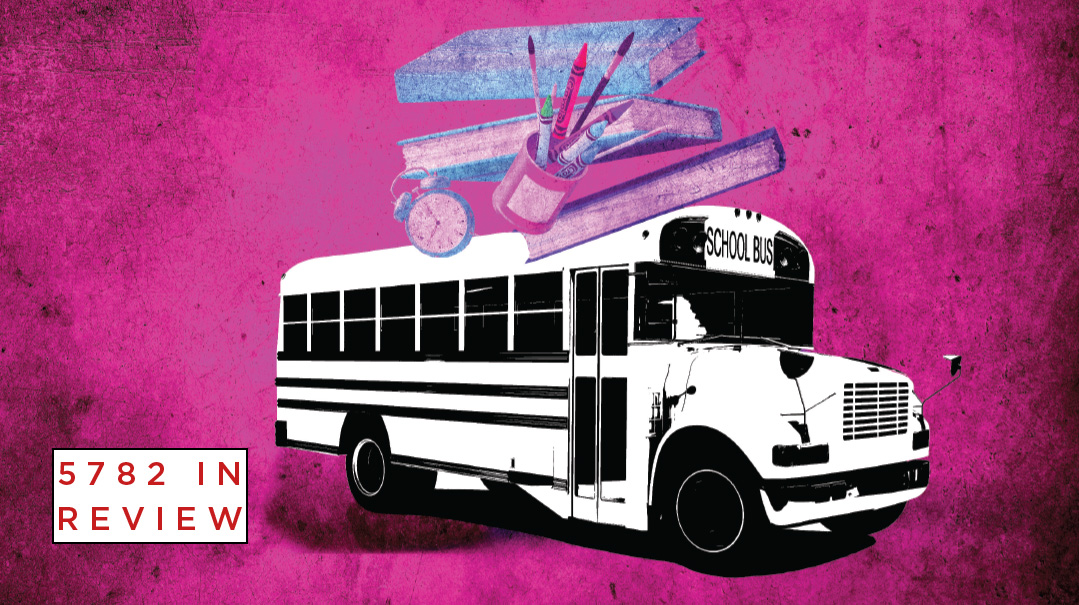South Jersey Shul Wins Big in Court
| March 12, 2024Toms River shul's day in court notches a zoning wars victory

T
he Bais Brucha shul in Toms River, New Jersey, won a big victory last Friday in its three-year legal battle with the township. A federal judge ruled in the congregation’s favor in its lawsuit against Toms River, finding that the township had conducted a discriminatory campaign to hinder the growth of the local Orthodox Jewish community.
The court victory clears the way for Bais Brucha’s plans to build a 4,680-square foot shul in the North Dover section of Toms River that will accommodate its growing membership.
“Our clients are deeply grateful that the court has affirmed the fundamental principle that places of worship must not face unjust and discriminatory exclusion from any municipality,” said Bais Brucha attorney Roman P. Storzer. “We remain committed to defending our clients’ rights to live, learn and worship as freely as any other citizen.”
The shul, led by Rav Mordechai Sekula, initially applied for a zoning permit on the property more than three years ago. The Toms River township denied the application in January 2021, based on zoning laws then in effect that forbade construction of houses of worship in the area where the Bais Brucha property is located.
Bais Brucha’s lawsuit pointed out that other nonreligious uses were permitted in similar zones. That constituted a violation of federal law, which prohibits towns from enforcing land use regulations that impose a “substantial burden” on religious exercise, absent a “compelling justification” that the restriction furthers a government interest.
Moreover, the township’s regulations on houses of worship even in zones where they were ostensibly permitted included such burdensome requirements as a ten-acre-lot minimum (a size scarcely found anywhere in Toms River), and a 300-foot-minimum lot width.
Finally, the plaintiffs alleged that the zoning laws, which were drafted in 2009 — just as the Orthodox Jewish population had started settling in the South Jersey township — were motivated by anti-Semitic animus. The lawsuit cited campaign mailers from a township council race in which two candidates photoshopped their opponents giving the thumbs-up to a “Welcome Lakewood Developers” sign. The mailers also promised that the candidates, if elected, would “stop Lakewood-style development” — a not-so-veiled reference to Orthodox Jews. The candidates also distributed a fake newspaper to convince voters that their opponents would turn Toms River “into Lakewood.”
Turning Tide
Bais Brucha’s court victory comes two years after the US Department of Justice reached a settlement with Toms River over the township’s violations of the federal Religious Land-Use and Institutionalized Persons Act (RLUIPA). As part of that settlement, Toms River amended its zoning laws to roll back many of the restrictions on religious land uses.
That settlement may have satisfied the US Department of Justice, but it came as a disappointment to many in the Orthodox community. The settlement brought Toms River into compliance with the strict letter of federal law, but still fell short of addressing the community’s needs. For example, Bais Brucha still could not build the shul it needed to host its tefillos.
But Friday’s finding by the United States District Court for the District of New Jersey will finally allow the congregation to move services out of Rabbi Sekula’s basement, where they were held until now.
While Bais Brucha’s plans are ostensibly protected under federal law — such as the First and Fourteenth Amendments to the US Constitution, and the RLUIPA — scheming local officials can throw up plenty of roadblocks in the short term, as Rabbi Sekula and his kehillah learned. But with the Bais Brucha decision following on the heels of several other such victories in South Jersey, the tide in the area may be turning.
Several months ago, Agudath Israel of America settled a seven-year lawsuit against neighboring Jackson Township, home to several thousand Orthodox families, making it one of America’s largest frum populations in its own right.
The Agudah alleged in its suit that the Jackson township council had violated the RLUIPA in passing zoning regulations that made it impossible for Orthodox Jews to build schools, dormitories, and eiruvs.
The settlement was ratified by the Jackson township council (which now includes a frum member) on October 31, 2023. It authorizes construction of schools and dormitories that don’t disrupt the town’s suburban character of suburban life. The council further committed to pass ordinances that allow every neighborhood in Jackson to have a house of worship, eiruv, and mikveh, previously prohibited.
“It has always been one of Agudath Israel’s priorities to simultaneously ensure that Orthodox Jews have schools for their children and maintain the quality of life for those who live in Jackson,” said Rabbi Avi Schnall, then director of Agudah’s New Jersey office, just before his own election to the New Jersey State Assembly.
In January 2023, Jackson also settled with Oros Bais Yaakov, which sued the township in 2014 after its request to build there was denied. After a decadelong fight, the township agreed to pay $1.35 million to Oros, and to shelve its requirement that schools receive accreditation prior to seeking land use approval for construction.
Because the state of New Jersey does not even offer accreditation to private schools, that seemingly innocuous regulation effectively barred non-public schools from building in Jackson. In March 2023, the Jackson planning board approved plans for a campus that will host three Orthodox Jewish private schools with a collective student body of 2,300.
As New Jersey’s frum population continues to grow, expanding into new jurisdictions, activists trying to set up proper communal infrastructure have often found they had their legal work cut out for them. Given the precedential nature of the US court system, though, every victory in court marks an incremental advance, clearing the trail ahead one step at a time.
(Originally featured in Mishpacha, Issue 1003)
Oops! We could not locate your form.







